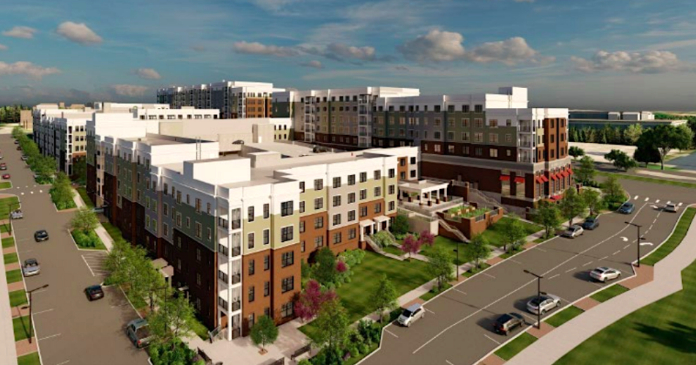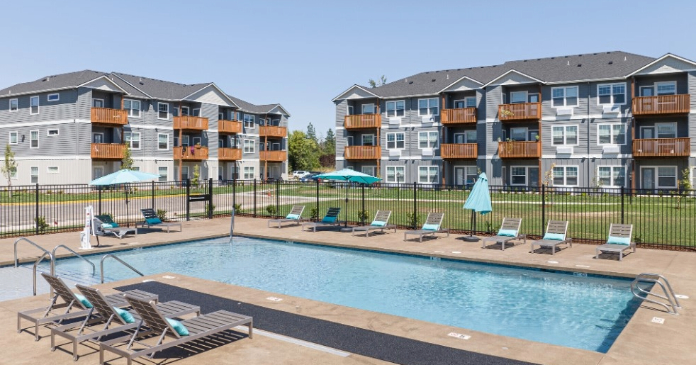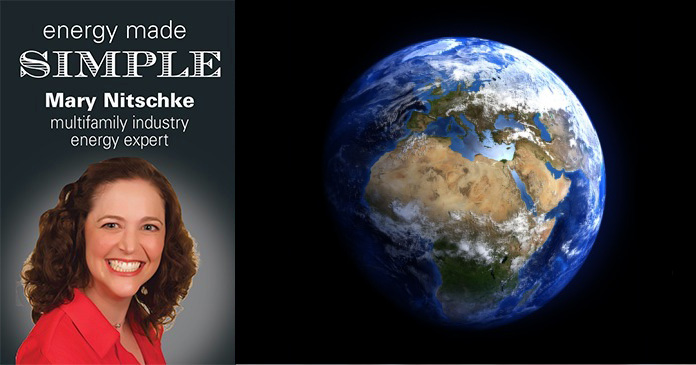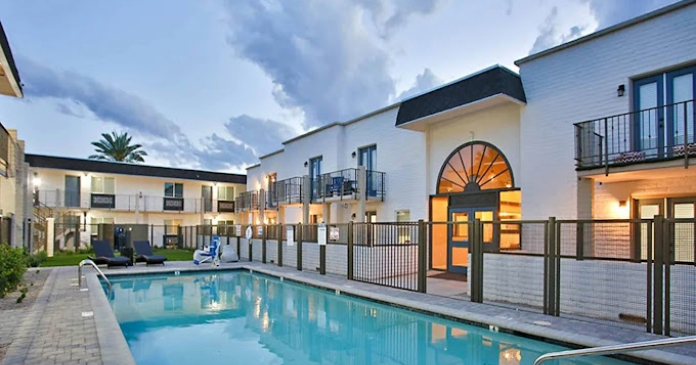Yield PRO TV presents NAHB Power Hitters. Host Linda Hoffman talks with Dan Minahan, President and COO of Continental Properties.
Transcript: NAHB Power Hitters interview. Linda Hoffman with Dan Minahan, recorded July 1, 2021
(music)
Linda Hoffman: “The world seems organized around the power of purpose,” wrote Napoleon Hill in his book, Think and Grow Rich. That might be a bit of an understatement for that which drives the soul of man. If any one group cornered the market on the power of purpose, it would be America’s entrepreneur.
Even as lockdowns erased hundreds of thousands of businesses across the country it will not change the very soul of a people. Productivity, economic growth, innovation… are all driven by this great nation’s relentless drive toward creation. Creating value. Elevating lives.
Today’s guest hails from just such a story of greatness and relentless determination… just one more story of genius from American’s heartland.
It begins with three college kids developing 8,000 feet of office space in West Bend, Wisconsin. Fast forward to today and Continental Properties owns and manages over 16,000 units in 16 states. A developer at heart, the company has also owned and operated office, retail and hospitality real estate.
Dan Minahan, president and COO of Continental Properties, it’s great to have you on the show.
Dan Minahan: Thank you, Linda. Pleasure to be here.
Linda Hoffman: Continental was launched over four decades ago by three college kids. Their first project, an 8,000 square-foot office building. How’s they pull it off?
Dan Minahan: Now you’re really go back in time but first let me say thanks for those kind words and all those accolades. One thing about being from the Midwest and having an origination in a small town like West Bend, Wisconsin, where Continental has its roots is that we like to stay humble. So, we always get a little nervous and start moving around when we hear those great words spoken.
I do appreciate, but just again. We value what we’ve created here and I’m happy to talk about them. And what we see our history has brought us and what it means for today.
Linda Hoffman: Well, I’m wondering as compared to today how hard would it be to pull that off today? Could three college kids do it?
Dan Minahan: I think of it often. I can’t imagine what it takes for an upstart developer in today’s world. It is just so many things that make it more difficult today. But I also quickly go to the entrepreneurial spirit you are referring to. That is so necessary and prevalent in our real estate industry… say more than any industry for that matter. And the result of that has been a very fragmented industry, forever, and continues to be.
In other words, so much gets done on the development side by brand-new entrepreneurs that start companies. So, it happens and it continues to happen every day. The difficulty for sustainability, and doing it over four decades like Continental, and then to the size that were doing it now. I, many times, just sit back and—wow. How did this happen?
But it would be much more difficult today. And yes, your story, if I may, I wish I had been there four decades ago. But it was Jim Schloemer and two of his high school friends that started the company when they were in college. And Jim continues to be very active in our business. He is our chairman and CEO, a principal shareholder. And he’s the gentleman who attracted me to Continental 25 years ago. So, the years go by in a hurry, but, yes, it’s a good story to tell.
West Bend is a small town north of Milwaukee. We now have offices in Milwaukee, have been here a long time. But the roots of the company are humble and small town. And I’d say more than anything, it reflects and who we are today and a culture that we have of that upbringing. And for so many different respects that we can talk about in this conversation. But, yes, we reflect back to our roots all of the time.
Linda Hoffman: Your speaking my language being a Midwestern girl myself. I understand exactly what you’re saying.
Dan Minahan: Yes.
Linda Hoffman: Continental develops in multiple spaces: office, retail, hospitality, in addition to apartments. You clearly believe in diversification. Yet within apartments, you’ve pretty much stayed with low-rise suburban properties. Dan what makes this market so attractive?
Dan Minahan: So many reasons, maybe a little more of a history tour, if I may, Linda, to directly answer that. To the core, Continental was a retail developer over the years. And that’s how we really earned our spurs, let’s say. And we were able to put into place a larger than just Wisconsin or Milwaukee footprint. And grew from being a small local brochure and retail developer, to building for the major retailers all over the country leading up to the great recession.
We all know things changed mightily in 2008 and 09, especially in the retail world. And we were very fortunate that we were positioned to pivot to multifamily, where we principally do our work today. So again, it’s that background that having developed over 14,000,000 sq. ft. of retail big boxes, having done it from a distance with the same model that we have today.
That model is that we do not have regional offices. We have a primary home office in a suburb of Milwaukee. We have 125 professionals here, give or take, and we have 250 professionals in our properties that are remote. But the key ingredients to the development side, the predevelopment, the construction management, and all the support–that all is housed here in Milwaukee. And that’s what we did by a team structure to do retail and that is what we do today. And how we’ve grown our multifamily platform using the same structure from afar. And as you mentioned, 16 states, we’re actually working in 19 states today. And a lot of people hit the airport on Mondays, and return on Thursday and Fridays, because we’re doing all that predevelopment and all the construction management from afar.
It’s worked well for us. It’s a team structure that accomplishes it and we have teams dedicated to different regions of the country. And they’re responsible for sourcing deals and then getting them through entitlement.
Linda Hoffman: That’s fascinating. Do you think that lack of franchise helps you hold onto your brand?
Dan Minahan: It’s hard to tell. I would say probably yes. It’s worked for us. It’s a model that is not seen too often. The model that works through regional offices, the larger the companies get, the more important that has become. It’s one that is been very successful for many of the multifamily developers in this country. But for Continental—where we have been and where we are today—we like the model of a central location and it’s a lot of to do with the culture and all being a team of professionals on the same page in everything we do.
Linda Hoffman: Dan, you’re in so many other spaces. Why apartments and is there really any hope in getting the housing nation so badly needs?
Dan Minahan: Linda, I’m glad you’re asking this. We think about it all the time at Continental. You know, what brings us to work every day? Why do we do this? I would say in these challenging times, and especially post-COVID, we’re going to have our trusted professionals all asking those questions. You stand back and you look at life, and why are we doing things the way we are and what’s my career? And there has to be more to it than just going to work.
So, I would say, I would like to talk about it as often as I can. But what all of us in the multifamily industry do on the development side is to create housing that everyone is looking for at all demographic levels. And we all have different places we’re doing it at different strata, but at the end of the day we’re trying to close this, what we’ve calculated and you’ve heard it publicized a lot, over a 5 million shortage in the number of homes out there. So, it bodes well for our industry, extremely well.
We just had to figure it out, because as I was saying earlier, what we build and where we build it is on us. And yes, we’re going to need governmental assistance at all levels to be able to get it done. And we’re going to need capital resources, but the mixing of a success is there. We just have to keep working hard at it to accomplish it.
Linda Hoffman: Let builders do what builders do.
Dan Minahan: Yes. And along the way you can make a lot of money doing it, as well. So, you do it for lots of different reasons, and that’s the motivation that keeps us going.
Linda Hoffman: Right. We are entrepreneurs.
Dan Minahan: And at the end of the day you have to be entrepreneurial to take that attitude and continue it. And, at the end of the day that’s going to result in success for you.
Linda Hoffman: So, speaking of the model, Continental has a number of brands. Give us an overview. What are those and who do they target?
Dan Minahan: You’re going to get me to talk about our brands and I’d love to, but there’s always a lead up to how we got to where that is. Our branding is primarily, in multifamily, a Springs product. And by Springs—every apartment building we’ve built since 2001 has been a Springs. And we’ve built over 100 of them or close to 100. We’re going to hit that milestone very soon. And that has been branded from day one, when we built our first product in a community in Bradenton, Florida.
It was a Springs then. In that footprint of that building it has certainly evolved over the years, but it’s still very much the same. To the core, our brand is a low-density product. Very unusual when we started doing it, garden style—and it still remains—a three-story, and its expanded even higher. But we suck to two-story and—we do—most of our communities continue to be a two-story, low-density product.
They have a direct access feature with garages. which is been the case from the beginning. And it’s been a huge part of the brand. Included in the brand is security for our residents. And that is evidenced by gated communities. We strive to, both, to have all our communities gated and fenced. And where the communities allow that to happen, which is most of them.
First and foremost, I’ll mention it now, is the suburban brand. What we build on the low-density—you obviously couldn’t do it in urban and urban core—we’ve resisted over the last decade to move into an urban setting. We continue to do it in the suburbs. So, that it is essentially the Springs brand. I can talk a lot more about where that is today and how others have been attracted to the model, so to speak, in the suburbs. But let me cover two other brands that we worked on and feel really optimistic about.
We all know there’s a huge shortage of homes in the country and affordable, or what we call attainable housing, has been out in the forefront in discussions by industry leaders for years now. The industry continues to struggle to develop and deliver attainable product. We’re certainly trying. So, we developed a brand that we call Authentix. And we’re really pleased to be able to tell the world now, we’re open and it’s meeting great success in the town of Holland, Michigan.
It’s a product that’s intended to get rent down to 15 percent from our Springs product in targeted hundred percent of AMI for the residence. And so far, so good. We’ve got quite a few in the pipeline, and that would be a second brand to Springs.
And thirdly, I will mention that we wanted very much to get into the build-to-rent. We think that that’s garnered so much publicity in just a short time. More and more players there. We have yet to break ground on one. We have branded Aventura and we’re very close to breaking ground on one of those communities.
So, Linda, that’s a quick snapshot of three brands and we began by targeting the suburbs.
Linda Hoffman: That’s fantastic. How do you think that lays against administration’s policies?
Dan Minahan: The industry has tried mightily on the lobbying front. I have to remain optimistic. I’ve been out in Washington talking to people there. Jim Schloemer here is been very active through NMHC, to be able to—and I know NAHB is very active, too. So, we have to maintain optimism. They share the goal, but the impediments that we face, and all face in being able to deliver on this housing shortage crisis is difficult by a long stretch.
So, I like to get into some of those difficulties and impediments later, but your question is—that we have to keep talking to our elected officials and hope that programs and policies will lead to all of us being able to develop that attainable product. And continue to develop where the people want to live.
Linda Hoffman: It only works through a private-government partnership.
Dan Minahan: Yes.
Linda Hoffman: Well, going up a little higher, what you feel is the secret to success at Continental, Dan?
Dan Minahan: The ingredients are—to be listed on a real long list—what comes to mind, Linda, just what it takes to become successful, and again, looking to the future and what it would mean for Continental to continue to enjoy success—I would start with recruitment and retention of top talent. And I feel we’ve done a very good job, as I mentioned, our headcount has increased mightily in the past few years. It takes more and more people to do more and more projects.
But today, that’s the number one ingredient for success. I just can’t emphasize that more. We could spend a lot of time. Companies are talking about it. There’s so much you have to do when it comes to the people. And we all know it takes a lot of effort, even more today post-COVID. With all the new issues that confront the workforce.
I would say number two, going forward here, and what we historically have worked very hard on—and that is finding the sweet spot for what the customer wants. So, after our people, it’s our customers. We better know what they want and where they want to live.
In this regard, we’ve really focused our efforts, now, on a recent hire at a high executive level—a person from outside the industry that has joined us. And spends his working time on figuring out the customer experience. So, we’re doing a lot more on the market research side. We’re doing a lot more in all of what you do to assess our customers, which includes talking to those customers. And our current residents base, but then others to make sure what we think they want, is indeed, what they want.
So, it’s pretty basic. You better know what markets to be in, so market selection is a huge part of that—that customer experience. And then back to the brands, what we build, not only where we build it, but you better build the right product. It’s not like the baseball diamond that you build it, they’re going to come. You better know this is what they want or you’re going to lose out.
Lastly, I would say, ingredients to success, in the past and future, are sticking to what you’re good at and don’t overreach. The challenges that all of us face in the industry today—it’s so easy to, as we were talking about earlier, getting out ahead of our skis, as I call it. But, don’t overreach. Now what do I think of when I say that? The overreaching can happen so easily—for how much you invest in your talent. You better have the right number of professionals. So, you come up with a strategic plan, and then you come up with how many talented people you need to do that. So, don’t try to do too much for what you have. But, also, don’t have too many professionals for what you think you can accomplish. So, don’t overreach there.
More—and this is something just clear to all of us every day—when we sit down and look at proformas, it’s so easy to pull a lever. There are so many assumptions, that all you do is pull a lever on that assumption and that proforma will work.
We’re very careful to stick to our assumptions and not vary too much. I’d love it, if we have time, we can talk a lot more of what those assumptions might be and how other people are doing it. I’d say at industry gatherings and when I work with fellow executives, and sit down and talk, the discussion very quickly goes to how do you underwrite your deals.
Those are my three top key ingredients for success.
Linda Hoffman: I think we’re going to need another show, Dan.
Dan Minahan: We can arrange that.
Linda Hoffman: Okay. So, it says to me like the future is bright, right?
Dan Minahan: The future is bright and laden with a lot of challenges in front of us. But, yes, I’d say the future is bright.
Linda Hoffman: There’s been a lot of movement in today’s culture and it’s good to hear that Continental is holding closely to the values that attract the talent. Great work, Dan, and I appreciate you coming on the show.
Dan Minahan: My pleasure and I’ll take you up when we get a chance, we can talk some more later date.
Linda Hoffman: I think we need to.
Dan Minahan: Thank you.
Linda Hoffman: It’s said that many things have changed forever in the last year. There’s probably some truth in that. What remains hard and fast are those things that move a man’s soul, like the power of purpose a drive to create, the divine power of human ingenuity. Companies like Continental remind us at the best ingenuity hails from both genius but also humanity. Thanks for joining us. I hope you enjoyed our show. See you on our next exciting episode of NAHB Power Hitters.
(music)












